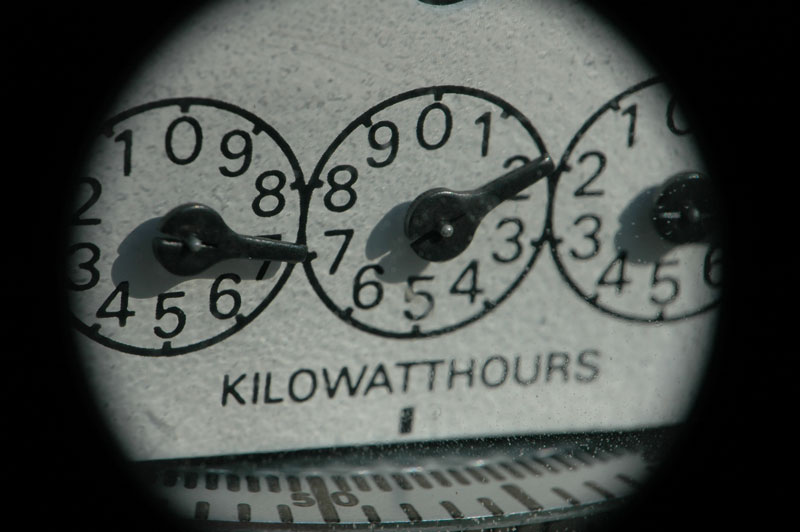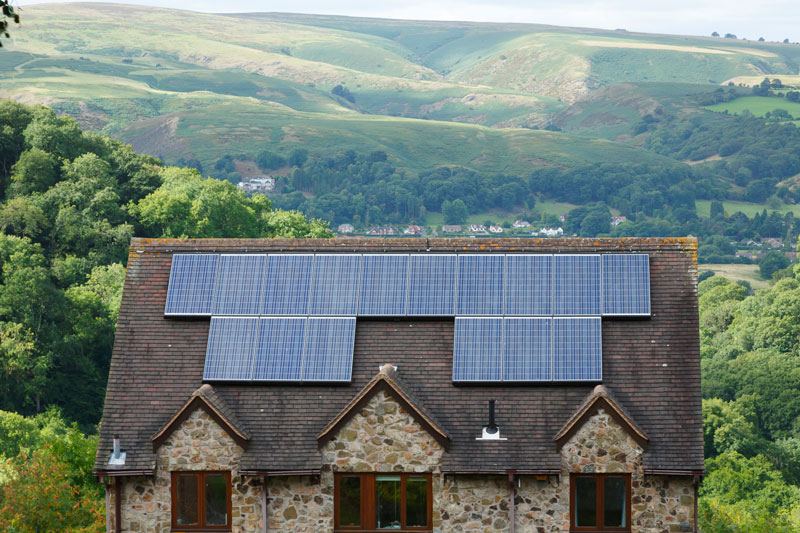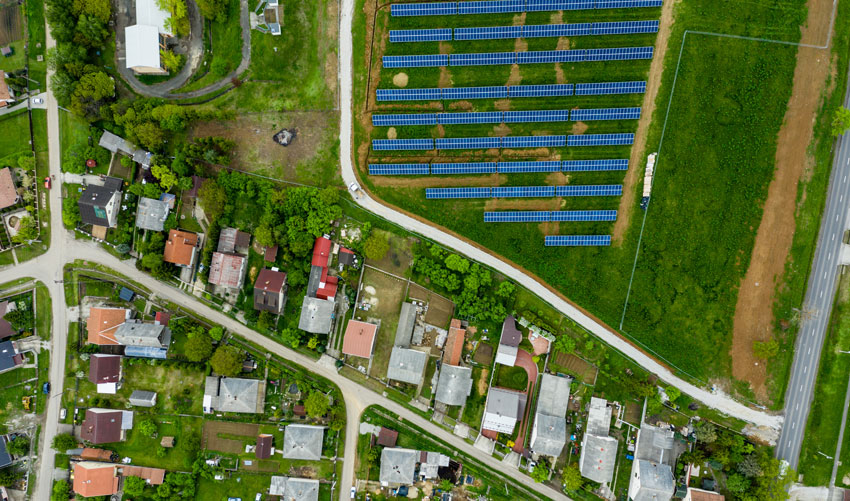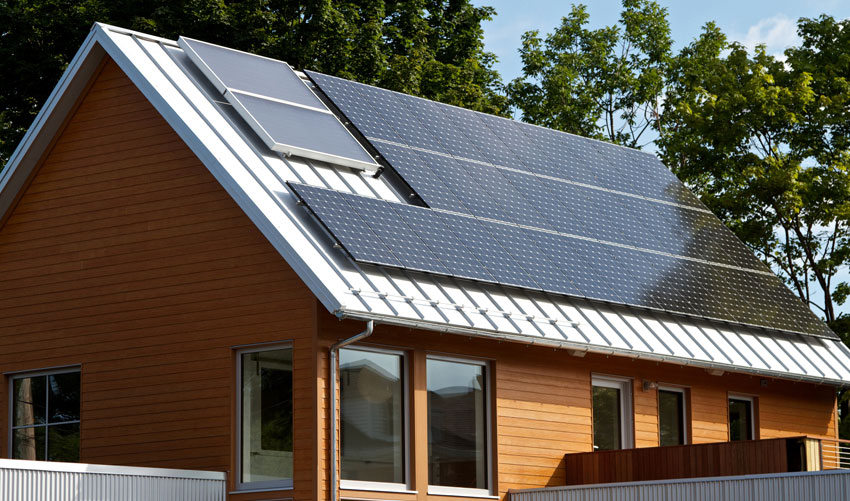When looking at solar panels, or hearing a manufacturer or installer talk about the wattage they produce, it can feel very confusing for the average person. After all, we’re not all electricians!
For those of us who are not electricians, wattage is the amount of energy that can be produced, stored, and the power output that can be utilized by the solar panel system.
But then that begs the question, what are watts? Why are they important, and can’t I just have the most powerful one?
A watt is a unit of power that is defined as 1 joule per second, and is only used as a form of measurement to quantify the transfer of energy from an energized source. It is named after James Watt, who was a Scottish inventor in the 1800s.
So when someone says the number of watts, they are talking about how much energy can be transferred per second. Watts should not be confused with volts, which is a different situation altogether.
Think of it this way: you can see watts in light bulbs. If there is a very bright light coming from the bulb that typically means there is a higher wattage. If the light is dimmer, that means there is a lower wattage, therefore less energy being transferred each second.
Volts you can feel if you touched an electrical wire with an electric current flowing. Volts are the unit for electrical potential defined by one ampere of electrical current against one ohm of resistance.
But (thankfully) for our purposes, you only need to understand what a watt is.
Watts are important because they tell electricians and technicians how much energy needs to be available for the system to work. So if your house is using 20,000 watts of electricity a day, to power your entire house with solar you need to make sure that the watts your solar panels produce are equal to or greater than the amount of energy used in the house per day.
They are also important because it helps to narrow down what kind of solar panel is going to work for your purposes. More watts does not always mean the solar panel system is better as it can unnecessarily drive up the costs of your system.
How Much Energy is Produced?
If your solar panel is in a sunny spot for, let’s say 6 hours a day, then we multiply the wattage of the panel by the number of hours in the sun. For the sake of this example, we will use 290 watts as our panels wattage.
290 is about the wattage of a premium panel. 290 x 6 (for hours in the sun,) is 1,740 watt-hours, or about 1.7 kilowatt-hours (kilowatt-hours are how many thousands of watts per hour.) You can then use this to find out how many kWh your panels will produce each week, month, or year.

The watts that manufacturers say their solar panels can produce is measured using ideal conditions and circumstances, with perfect sunlight. So, expect your solar panels to produce a slightly lower amount of watts than what the manufacturer claims.
Most solar panels will have power-outputs of around 250-400 watts, with a higher number of watts coming from more expensive, larger panels.
Typically, people will need several panels to be able to power their homes without running the risk of running out of power in the battery. The amount of energy your home uses should be calculated before installing solar panels or purchasing any panels since the wattage of the panels will matter.
Size, Quantity, and Capacity
A high amount of energy output from the solar panel does not always indicate if the solar panel is of quality and performs well. Some panels are much larger than others, and so they have a higher energy output simply because of their size, not their actual efficiency, technology, or performance.
The solar panel’s efficiency should be measured not just by solar capacity, but also by the performance strength of each solar panel. This way, all the factors can be examined and a much more fair assessment of the power output of each panel, and the system as a whole can be gathered.
The number of panels in your solar power system will also affect the ending amount of power output. Fifteen 300 Watt panels have the same power output as eighteen 250 Watt panels, with both systems producing the same amount of kWh of electricity.
Location, Climate, and Environment
Additionally, the power being produced by your solar system will heavily reflect the environment that you are building your solar power system in. Factors beyond weather, such as climate, make huge impacts on the amount of energy your solar panel system can produce compared to what it actually produces in your specific climate.
Locations with lots of factors like cloud cover or smog can negatively affect the power output of your solar panel system. Solar panel systems work best in locations with consistently sunny days, since they can produce much more energy in less amount of time.

Folks who live in places that see rainy days often should make sure they have researched their ability to go solar very deeply so that they do not end up with a system that produces significantly less energy than they need.
While one system in one part of the country can produce 8,000 kWh, the same system and same set up may produce 10,000 or 6,000 kWh in different parts of the country. For example, a system in Washington state may have less kWh produced due to the heavy cloudy cover when compared to a system from the state of Arizona.
Besides the location of what building or thing you are setting up with a solar panel system, the location of the panels themselves is hugely important. This may seem somewhat obvious, but never put your panels in a place with high amounts of shade.
This will negatively affect the production of kWh harnessed by your system. Always place your panels on the section of your roof with the most sun, or they can be placed on stands on the ground to maximize your solar panel systems’ output if the roof is not a viable option.
Which Solar Panels Produce the Most Amount of Electricity?
Typically, solar panels produce a power output somewhere around 250 to 400 watts, but of course, there are some panels that produce more than 400 watts or less than 250 watts.
Usually, people are searching for panels that produce more wattage and power output than 400 watts rather than less than 250 watts, so let’s explore some panels that produce more than 400 watts.
The SunPower E-Series is a very high producer and produces a staggering 435 watts of electricity. The SunPower E-Series is a line of commercial solar panels, but for those who are searching for that amount of electrical output, this is a great one to check out.
You can find out more information about the SunPower E-Series here.
The SunPower A-Series AC Module is from the same brand and manufacturer as the SunPower E-Series, but the A-Series is a residential solar panel system line. The SunPower A-Series AC Module produces 425 watts, which is just 10 watts below the commercial-grade SunPower E-Series.
You can find out more information on the SunPower A-Series AC Module here.
Final Summary
To conclude, the watts that a solar panel system or a single solar panel can produce is very important when selecting the panels or systems to apply to your home or business.
The typical wattage that the average solar panel will produce is around 250 to 400 watts, and although some produce less, people usually look for panels that can produce more energy output rather than less.
The size of the solar panel does not necessarily mean that it is better or more efficient than smaller ones. Even if they do produce more energy and power output than a series of smaller panels, a low-efficiency rate might be costing more than its paying back.
The locations, both geographically and where the solar panel system is set up, are very important to successful solar energy. Clear skies and frequent sunny days are the keys to success when talking about geography and solar panel systems.
Additionally, the location where the solar panels are set up is very important. They must be in a place that gets direct sunlight for as many hours of the day as possible to maximize the energy output you get per panel each day.
Finally, communicating with the manufacturer of the solar panels or solar panel system that you are interested in is critical. Any questions that you have about your climate, location, your electrical needs and expectations, and other topics are things you should communicate with your manufacturer.
Having an experienced expert on solar energy come and do a consultation of your building and area is another important key factor.
Overall, the production of watts per panel and wattage produced in general will vary from the brand to battery, to location, to climate to how much care it is given. Assess these factors in your selection of solar panels to maximize the efficiency and wattage you get from your solar panel system.




